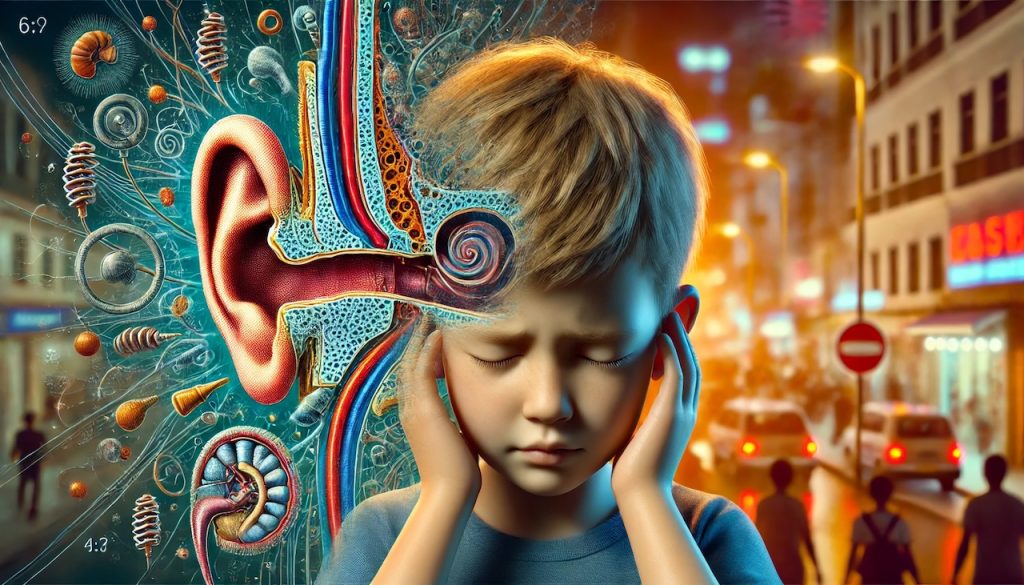
ARUBA - Jan. 27, 2025
The Directorate of Public Health (DVG) of Aruba has introduced new guidelines to protect the hearing of the public, artists, and workers during music events. Hearing loss is irreversible and can drastically reduce quality of life, making prevention essential. These guidelines are designed to minimize the impact of harmful noise and create a healthier sound environment during events such as Carnival and outdoor concerts. They are based on the natural limitations of human hearing, which can only safely tolerate certain sound levels.
Why is Hearing Protection Important?
Our hearing is a precious and vulnerable sense. Exposure to high noise levels can lead to serious hearing damage, such as tinnitus (permanent tinnitus) or even permanent deafness. Unfortunately, hearing damage is almost always irreversible. The cilia in the inner ear, which convert sound into signals to the brain, cannot recover once damaged.
In children, hearing is even more vulnerable. Their hearing system is still developing and they are more sensitive to damage from noise. Studies show that children can be damaged even at lower noise levels than adults. In addition, prolonged exposure to loud noises, such as during events, is more damaging to young ears because their thinner ear canals amplify the sound extra. This emphasizes the need for stricter protection for children during music events.
In addition to hearing damage, exposure to excessive noise levels can cause other health problems, such as:
- Increased heart rate and blood pressure.
- Stress and irritability.
- Sleep disorders due to prolonged overstimulation.
- Impaired communication and concentration.
Human hearing is biologically limited in its ability to tolerate high noise levels for long periods of time. These limitations form the basis for the guidelines, which help reduce the risk of hearing loss and other health effects.
DVG's New Guidelines
To mitigate these risks, DVG has developed a set of guidelines for noise management at music events. These guidelines focus on different types of events and venues:
- Indoor spaces:
- Noise level should not exceed 90 dB, measured from the stage to the farthest place in the hall.
- Organizers are encouraged to optimize the space acoustically to minimize harmful sound reflections.
- Outdoor spaces:
- By noon: Noise level up to maximum 100 dB.
- After noon: Maximum limit of 95 dB, measured at the event site boundary.
- Carnival parades:
- Noise level should not exceed 90 dB, measured at a distance of 10 meters from the speakers.
- This measure is essential to protect both participants and spectators, including children and the elderly.
The Reality of Carnival and Sound
Previous noise measurements during Carnival parades in Aruba showed levels as high as 115 dB. This is similar to the sound of a jet engine and is well above the safe limit of 80 dB (the international standard for safe exposure during an 8-hour workday).
Exposure to such noise levels can not only cause hearing damage, but also lead to heart rate disturbances, increased stress levels and irritability. This makes clear and enforceable noise standards indispensable.
How Do These Guidelines Help?
The new guidelines, established in the "Guideline Nuisance Noise Standards for Music Events, offer organizers and sound technicians concrete tools to make events safer. By using certified equipment and mandating hearing protection, such as earplugs that reduce noise by at least 30 dB, events can be both fun and safe.
These guidelines are not arbitrary; they are based on the physical limits of human hearing. Research shows that exposure to sound levels above 85 dB can already be harmful, depending on the duration of exposure. By respecting these limits, we can effectively prevent hearing damage and other health problems.
What Can Visitors Do?
The audience also plays a crucial role in protecting their hearing. Some practical tips:
- Use earplugs during events, especially when standing close to speakers.
- Take breaks away from loud music to give your ears a rest.
- Do not stand too close to speakers to avoid unnecessary exposure.
More Information
The full guidelines document can be downloaded from the DVG website: www.dvg.aw under the research/announcement section.
By implementing these guidelines, Aruba is taking an important step toward a healthier and more sustainable event industry that focuses on both fun and safety.

